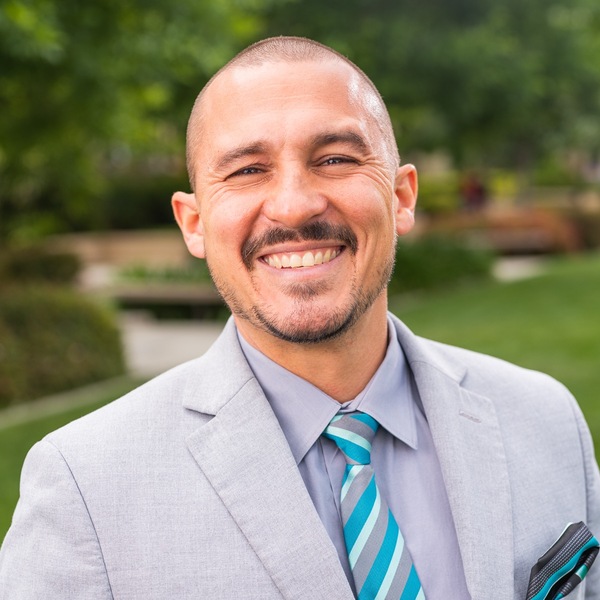
Co-Program Chair of Kinesiology and Public Health
Associate Professor of Kinesiology and Public Health
Dr. Peterson’s research background is founded on biomedically-based applications [molecular to applied] in human, animal, and clinical settings. Specifically, his doctoral training was focused on applying the aforementioned methodologies toward the investigation of human movement-related physiological adaptations, and applying outcomes observed in animal models, in a clinically-based cancer patient population. In addition, he also conducted postdoctoral didactic and research-related training in the Colorado School of Public Health.
Current research in the Peterson lab is focused on the investigation of blood and saliva-based biological markers of inflammation (cortisol, TNF-𝞪, IL-1-10, CRP, testosterone) in stress, exercise, and resting conditions. Current work has also included multiple collaborative published projects related to SARS-CoV-2. Upcoming SARS-CoV-2 projects include the investigation and profiling of multiple human conditional elements and the presence of vitamin D concentrations and blood-based antibodies for SARS-CoV-2 (IgG; nucleocapsid, receptor binding domain, spike 1 subunit, and spike 2 subunit).
Dr. Peterson’s teaching expertise is focused within the breadth of Human Movement Physiology in research, clinical, and public health applications in both the Kinesiology B.S. program and in the Master of Public Health (M.P.H.) Program. He engages learning dynamically and energetically from the learn, do, teach perspective. Having completed thousands of direct clinical hours working with cancer patients, his goals are to emphasize the importance of the interpersonal and missional roles Biola students will have with their future patient populations. Thus, students are encouraged to creatively engage in the personal ownership process of material assimilation. He also emphasizes the importance of peer-reviewed research, case evaluation, and practical applications while encouraging students to be strong and courageous in the integration of their faith in Christ and how they approach their field of study. Students are encouraged to fervently and consistently draw closer to their Heavenly Father as they study God’s creation.
"Mental health, substance use, and the importance of religion during COVID-19 pandemic," Park, J.Y., Galbadage, T., Lee, H., Wang, D.C., & Peterson, B.M. [invited manuscript]. Mental Health, Religion, and Culture, 2023.
“The Impact of COVID-19 on Physical Activity among Employees and Students at a Midsize University,” Tata, L., Peterson, B.M., & Olson, T.L., Journal of Physical Activity Research, 2023.
“Molecular Mechanisms Lead to Sex-Specific COVID-19 Prognosis and Targeted Therapies,” Galbadage, D.T., Peterson, B.M., Wang, J.S., Jayasekera, A., Ramirez, D., Awada, J., … & Gunasekera, R.S., Frontiers in Medicine, 2020.
“Biopsychosocial and spiritual implications of patients with COVID-19 dying in isolation,” Galbadage, T., Peterson, B.M., Wang, D.C., Wang, J.S., & Gunasekera, R.S., Frontiers in Psychology, 2020.
“Early COVID-19 interventions failed to replicate st. louis vs. philadelphia outcomes in the united states,” Jalali, A.M., Peterson, B.M., & Galbadage, D.T., Frontiers in Public Health, 2020.
“Systematic review and meta-analysis of sex-specific COVID-19 clinical outcomes,” Galbadage, D.T., Peterson, B.M., Awada, J., Buck, A.S., Ramirez, D.A., Wilson, J., & Gunasekera, R.S., Frontiers in Medicine, 2020.
Abstract: “Evaluation of sitting time on faculty and staff in a small private university,” Altamirano, K., Peterson, B.M., Miller, K., & Gardner, J.K., Medicine & Science in Sports Exercise, 2020.
“Effects of Aerobic and Flexibility training on physiological and psychosocial function in a patient with anaplastic oligodendroglioma: a case report,” Peterson, B.M., Shackelford, D.Y.K., Brown, J. M., Brennecke, A.P., & Hayward, R., Journal of Rehabilitation Medicine, 2020.
“Does COVID-19 spread through droplets alone?,” Galbadage, D.T., Peterson, B.M., & Gunasekera, R.S., Frontiers in Public Health, 2020.
“Caffeine Increases Rate of Torque Development Without Affecting Maximal Torque,” Peterson, B.M., Brown, L.E., Judelson, D.A., Rehbert, S, & Coburn, J.W., Journal of Science and Sport in Exercise, 2019.